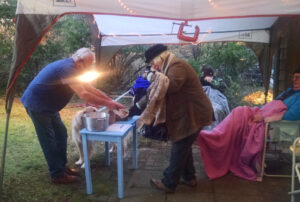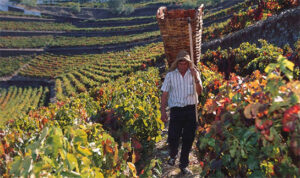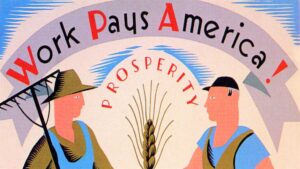lummi island wine tasting march 12 ’21
(Some photos will enlarge when clicked)
Bread This Week
 Breton – Incorporates the flavors of the French Brittany region. Bread flour, fresh milled buckwheat groats. and rye berries make for interesting flavor and the salt is sel gris – the grey salt from the region that brings more mineral flavors to this bread. Goes great with meats and cheeses – $5/loaf
Breton – Incorporates the flavors of the French Brittany region. Bread flour, fresh milled buckwheat groats. and rye berries make for interesting flavor and the salt is sel gris – the grey salt from the region that brings more mineral flavors to this bread. Goes great with meats and cheeses – $5/loaf
Whole Wheat Levain – Made with a sourdough starter that is built up over several days and fermented overnight in the refrigerator. The bread is made with the levain, bread flour, and about 25% fresh milled whole wheat. It has a ‘toothy’ crumb, great texture and flavor and a nice crisp crust.– $5/loaf
Brioche au Chocolate – A rich brioche dough made with plenty of butter, eggs and sugar, rolled out with pastry cream before sprinkling with dark chocolate. -2/$
Wine of the Week: UDACA Eloquente Dão Tinto ’18
 In the 1940’s Portugal’s Prime Minister Salazar established rules that required wine production to be done only by regional cooperatives which would sell the wines to private merchants for distribution. Since 1966, UDACA has been a Portuguese wine cooperative in the Dão region of Portugal, located far enough inland in the northwest corner of the country to get some shelter from cold and rainy North Atlantic winters, while also getting hot, dry summer sun exposure for full vineyard ripening.
In the 1940’s Portugal’s Prime Minister Salazar established rules that required wine production to be done only by regional cooperatives which would sell the wines to private merchants for distribution. Since 1966, UDACA has been a Portuguese wine cooperative in the Dão region of Portugal, located far enough inland in the northwest corner of the country to get some shelter from cold and rainy North Atlantic winters, while also getting hot, dry summer sun exposure for full vineyard ripening.
The coop has successfully centralized the production of Dão wines from nearly 60% of the region’s vineyards, located primarily in sandy, well-drained soils on a granite plateau 500-1500 ft. above sea level. and sheltered on three sides by granite mountain ranges. Unfortunately one downside of the coop organization was the lack of a competitive incentive to improve their wines until Portugal joined EU in 1979. read more
UDACA Eloquente Dao Tinto ’18 Portugal $9
Touriga Nacional, Tinta Roriz, Jaen, and Alfrocheiro Pret; rich and intense; a popular wine from the Dao region,
with clear ruby color, clean aromas of red and ripe fruits; soft, balanced flavor, and a lingering finish.
Normalcy on the Horizon…?
 It is no secret that we and a large proportion of our “regulars” at the wine shop are retired. A big perk that comes with that much, um, experience is that many of us have already received our Covid vaccinations or soon will. And of course we have all been wondering, “When can we return to normal interaction with others who have had their shots?”
It is no secret that we and a large proportion of our “regulars” at the wine shop are retired. A big perk that comes with that much, um, experience is that many of us have already received our Covid vaccinations or soon will. And of course we have all been wondering, “When can we return to normal interaction with others who have had their shots?”
As if in response to millions of senior citizens rubbing magic lamps asking this same question, just in the last few days CDC announced that: People who are fully vaccinated against Covid-19 may safely gather with small groups from other households without wearing masks or physically distancing, even if those people have not yet had their shots.
To which we can only say “Wow!” and “Really?” But then, before we can get giddy about it we are surprised to encounter a part of ourselves that finds the whole concept of “social normalcy” too abstract even to imagine.
Nevertheless at the moment we are looking at limited reopening in April for those who have completed one of the Covid vaccine sequences. Stay tuned!
The NEW New Deal
 The first 30 years of the 20th century were the decades of the Robber Barons (and the Spanish flu!), which led to the Great Depression beginning in 1929. There were no safety nets. Banks had no reserves, and many went out of business within days, taking ordinary people’s savings with them. Companies went out of business overnight. People lost their jobs, lost their savings, lost their homes. It was a terrible time. Most of us who are now old have stories from our parents, who were young adults then, of how people pulled together, and those who could gave meals at the back door to those less fortunate, and those who couldn’t stood in soup lines if they could find one.
The first 30 years of the 20th century were the decades of the Robber Barons (and the Spanish flu!), which led to the Great Depression beginning in 1929. There were no safety nets. Banks had no reserves, and many went out of business within days, taking ordinary people’s savings with them. Companies went out of business overnight. People lost their jobs, lost their savings, lost their homes. It was a terrible time. Most of us who are now old have stories from our parents, who were young adults then, of how people pulled together, and those who could gave meals at the back door to those less fortunate, and those who couldn’t stood in soup lines if they could find one.
In 1932, at the worst of it, FDR was elected President, launching a new era in American history, government, and economy. The New Deal addressed poverty with public employment programs like the CCC, and with the Social Security backstop for those who could not work even if there were jobs. It regulated the banking system and reorganized the Federal Reserve System to make it more responsible and resilient to financial perturbations.
The New Deal was based on the economic theories of John Maynard Keynes, which can be metaphorically described with a little parlor game in which a number of people sit around a table with equal piles of money. When the game begins, everyone takes some money out of their stack and passes it to the person on the left. They can pass as much or as little as they choose.
That process continues until the game is ended without warning by a referee. At that point everyone gets to keep whatever money is left in front of them. The actual game is a psychology experiment which teaches the players something about their altruist-miser spectrum.
But Keynes was focused on how important it was for all the money to stay in circulation. In the first few pages of any economics text, there is some kind of chart of Circular Flows. Individuals work for themselves or for others in exchange for wages, which they spend to buy goods and services from other individuals and businesses. Businesses pay people to work for them to produce goods and services that other people buy. The game keeps going as long as everyone keeps taking in and passing out money. When anyone starts hoarding the stream slows down, and everyone but the hoarders has less, resulting in a slowing of the whole stream of exchange. Eveyone benefits when the game continues, and everyone loses when it slows down.
The basic difference between Republicans and Democrats is that Republicans have convinced themselves that there is a way they can siphon money out of the system in such a way that the overall throughput will continue to increase. But in the forty years since Reaganism killed the New Deal once and for all, wealth has become densely concentrated in the hands of a smaller and smaller number of hoarding players. Worker incomes in real dollars have fallen continually. Spending cuts have gutted the public infrastructure which is necessary to keep the game going, and Republicans consider that a political victory.
We will continue this next week. The important takeaway for today is that the passage of the Covid Relief Bill is a major paradigm shift in US economic policy. After forty years of Reaganomics has gutted public infrastructure, thrown the poorest and most needy out of the lifeboat and under the bus, concentrated wealth in fewer and fewer hands, destroyed the environment, privatized more and more of the public sector (like prisons and military support facilities) into far more expensive and less effective operations, etc., etc., etc.
Whatever you want to call it, today marks the beginning of the New New Deal, the best thing that has happened in this country for a long, long time. It is something to be served with a bit of reverence and mindfully savored. MMMmmmmm!
If you enjoyed this post, please consider to leave a comment or subscribe to the feed and get future articles delivered to your feed reader.

 2072 Granger Way
2072 Granger Way